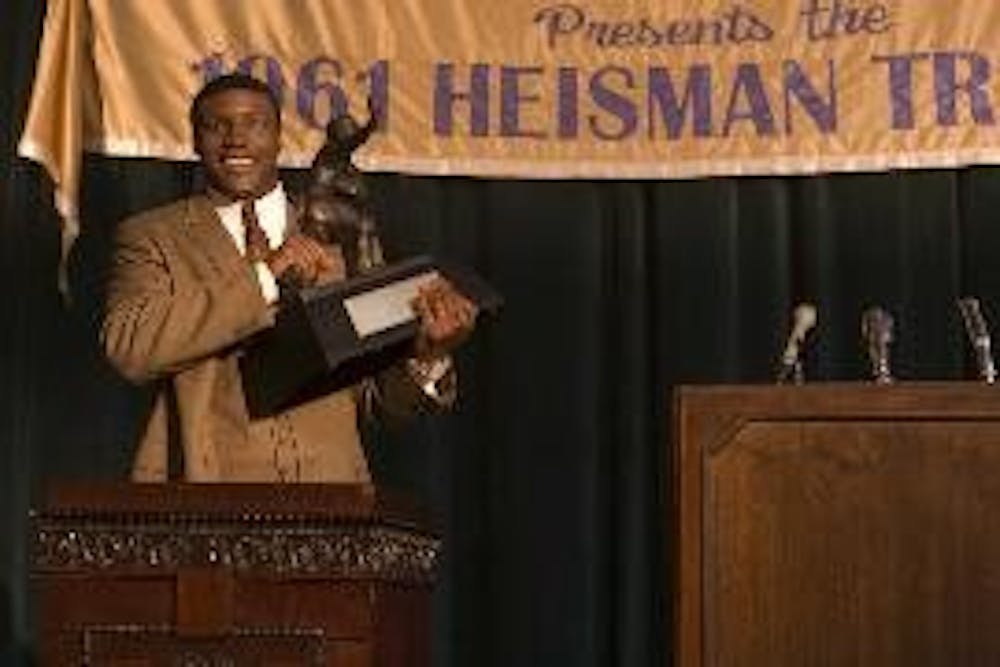Everyone loves an inspirational sports movie, and "The Express," although by no means Oscar-worthy, fulfills the genre's standard expectations.
"The Express," based on the life of the first black Heisman Trophy-winner Ernie Davis, chronicles the story of how Davis' life ended tragically when he succumbed to leukemia at age 23 during his first season with the Cleveland Browns football team. Davis' career runs parallel with social issues of the time - the imminent passing of forced integration legislation and the first rumblings of the civil rights movement.
Davis is forced to confront and overcome the race conflict as he carries out his dream, yet the screenwriting often contorts the film's social agenda, peppering the story with eye roll-inducing lines such as: "This game is about something more than winning. Winning doesn't mean a thing if you lose yourself." The writing almost undermines the audience's intelligence in its effort to suggest that we need to be guided so blatantly in order to reach the film's desired conclusions.
Along the same lines, football is lazily used as either an indicator or metaphor for everything. Scenes of Davis receiving some lucky breaks in his social life mix with clips from a particularly smooth practice. When his father dies, Davis' mourning is cut with clips of hard tackles during a period of incredibly dreary weather - it gets old very quickly.
Director Gary Fleder, on the other hand, took a stab at originality by working closely with the editors, producing scenes in "The Express" that are comprised of footage spliced with vintage newsreels and actual game reels. The images in the film encompassed grainy, black and white footage as well as digital modern recordings, granting these scenes an epileptic feel. The cuts flash rapidly and occur in dense bursts and then retreat as sports cinematography takes over.
There are only so many ways to film a football game with tight shots that scan the players and shakily follow the plays. The technique, it must be noted, leaves the non-sports enthusiast completely at a loss for what's going on. The filmmakers give the obligatory sports-genre cues: something pivotal and monumental was about to occur with a swelling of strings as the film ran in slow motion. Then suddenly the sound drops away and you see the stadium from the player's eyes as you hear the sound of his heavy breathing. He comes within a few yards of the end zone and the camera snaps back to real-time and the horns cue as triumph is secured. You've seen it before, promise.
Even a sucker for a good inspirational sports movie - the kind that makes you all sweaty and after that final goal is scored you just want to go be a pro-athlete in any sport, doesn't matter, any sport - couldn't help but experience continual déj? vu watching "The Express." At least in progression, cinematic technique and writing, "The Express" is nothing new.
You can reach this writer at thescene@theeagleonline.com.





